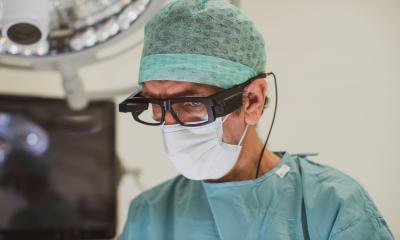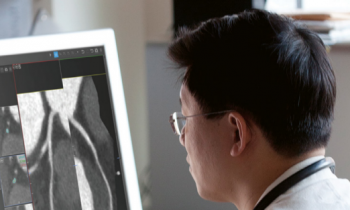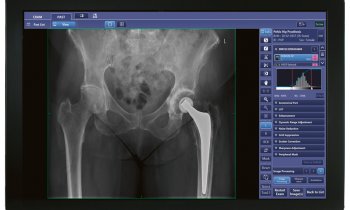Article • Telehealth
Sheba Beyond: Creating Israel’s first virtual hospital
Israel’s first virtual hospital has been created following the advances and applications learned from using telemedicine tools and techniques to care for coronavirus patients in isolation wards. Sheba Beyond was established in January and over the last few months has successfully delivered care to patients across a range of areas. The development of the project was outlined to the DMEA – Connecting Digital Health event by Dr Galia Barkai in her presentation “To Infinity and Beyond: Telehealth during Covid-19 - from Crisis to Opportunity.”
Report: Mark Nicholls
She explained that the origins of the virtual hospital can be traced backed to the early days of the coronavirus outbreak when the Israeli government decided to bring home citizens from a cruise ship from Japan where there had been a Covid-19 outbreak.
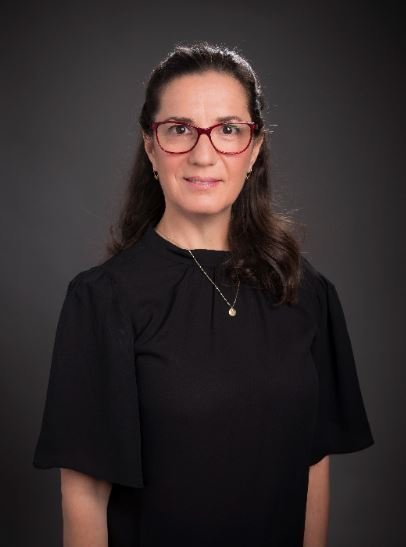
At a time – in February 2020 – when there was no Covid in Israel, the Sheba Medical Center agreed to take these patients and, with only three days preparation, created an isolated ward on the main campus. “For this new kind of ward, we used telemedicine tools for these hospitalised patients is in order to protect our personnel from contracting the disease,” she said. “Usually, we use telemedicine to take care of remote patients but here we wanted to prevent the need for us to go inside the ward and be exposed to this disease. What we wanted to do was give highest level of medical care with minimal physical contact.”
Dr Barkai, who is Director of Sheba Beyond but at the time was Director of the Pediatric Infectious Disease Unit as well as the head of the Telemedicine innovation hub, brought together Israeli companies that specialised in telemedicine technology to deliver a solution. They included InTouch Health Uniper, Datos, EarlySense, Tytocare and BioBeat.
Within about a week we transformed all our 200 outpatient clinics at Sheba Medical Center to video clinics and finished 2020 with more than 60,000 video visits
Galia Barkai
Over the weeks that followed, and as the isolated patients developed coronavirus, telemedicine was used on campus to treat this group to contain any spread and reduce contact with hospital personnel. The techniques delivered communication, monitoring of heart and respiratory rate and motion to show if patients were deteriorating, along with equipment such as digital stethoscopes to facilitate physical treatment. This was later expanded to create three coronavirus wards and an underground ICU for Covid-19 patients at Sheba Medical Center, which has been designated as one of the 10 best hospitals in the world according to Newsweek.
Dr Barkai explained that this delivered medical care to isolated coronavirus patients, but then allowed continuity of care as all outpatient clinics were transformed to video clinics. “Within about a week we transformed all our 200 outpatient clinics at Sheba Medical Center to video clinics and finished 2020 with more than 60,000 video visits,” she said.
As patients were helped with the technology and clinicians trained in telemedicine use, she continued: “When we came out of the first wave of Covid-19 we understood that something big had happened here, and that telemedicine is not a constraint. We understood it can empower patients and allow for better quality, efficacy and accessibility to healthcare. We understood we had telemedicine tools that allow us comprehensive solutions that are highly-scalable and this made us think that we can change our whole perception of the term ‘hospital’, that is does not mean ‘a house for sick people’ and that we can give our service for people who are not here in the same physical place. Then, we decided to take it one step forward and build our first virtual hospital in Israel and this is Sheba Beyond.”
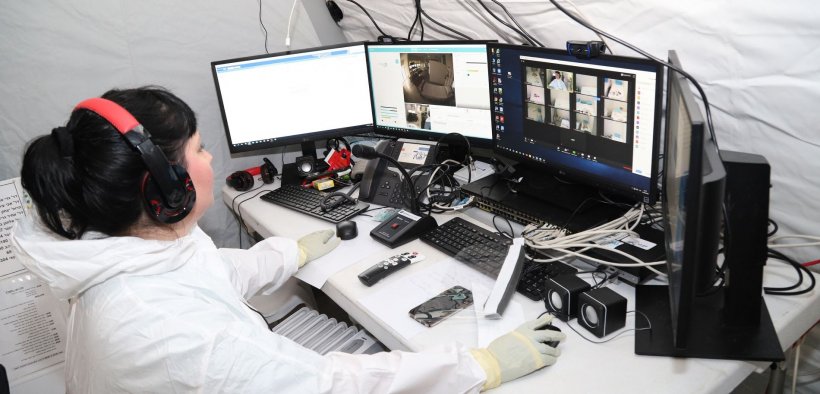
Since Sheba Beyond opened, Dr Barkai explained it has evolved over the last few months using telemedicine tools to provide services in a different way with “innovative, tailored and accessible medicine.” Already, it provides an array of virtual services with rehabilitation, chronic care management and acute care. One example is psychiatric home-hospitalisation, which has helped patients with mental illness remain at home where they are given medication and smart devices for monitoring, combined with video home visits, supported by their whole clinical team of psychiatrist, social worker, dietitian, physiologist, psychologist and case manager nurse. “The case manager in this programme will actively reach out and talk to them at least once daily during the acute phase during the first few weeks and then we will continue to look over after the patients for their psychiatric illness, even up to a year if needed,” she said. “This is a very a successful programme and we already have more than 100 patients enrolled in it.”
Telehealth can transgress geographic, science, social, cultural and political barriers and it has the potential to allow healthcare for anyone, anytime and anywhere
Galia Barkai
Another service covers pediatric obesity for children who are overweight or obese. Sheba Beyond has a multidisciplinary programme to treat these patients that includes a senior physician, nutritionist, physiologist and a psychologist to deliver physical activity, weight loss with diet, and change of mindset. Smart devices monitor activity, but with incentives built in to help increase adherence. The virtual hospital also has plans for rehabilitation online that uses a specific software to allow physical, cognitive and speech rehabilitation.
The services are continually evolving, with artificial intelligence introduced to improve decision making, and plans to introduce robotics and sensors to give more objective patient information. But she emphasises: “These telemedicine technologies will not replace physicians and medical staff; they will get us closer to the patients. Telehealth can transgress geographic, science, social, cultural and political barriers and it has the potential to allow healthcare for anyone, anytime and anywhere.”
Profile:
Dr Galia Barkai is Director of Sheba Beyond, Israel’s first virtual hospital. She has served as director of the Pediatric Infectious Disease Unit as well as the head of the Telemedicine innovation hub, ARC. A consultant for pediatric infectious diseases, she completed her training in Pediatrics at the Kaplan Medical Center in Rehovot, and specialised in Infectious Diseases at the Soroka Medical Center in Be’er Sheva.
05.08.2021




